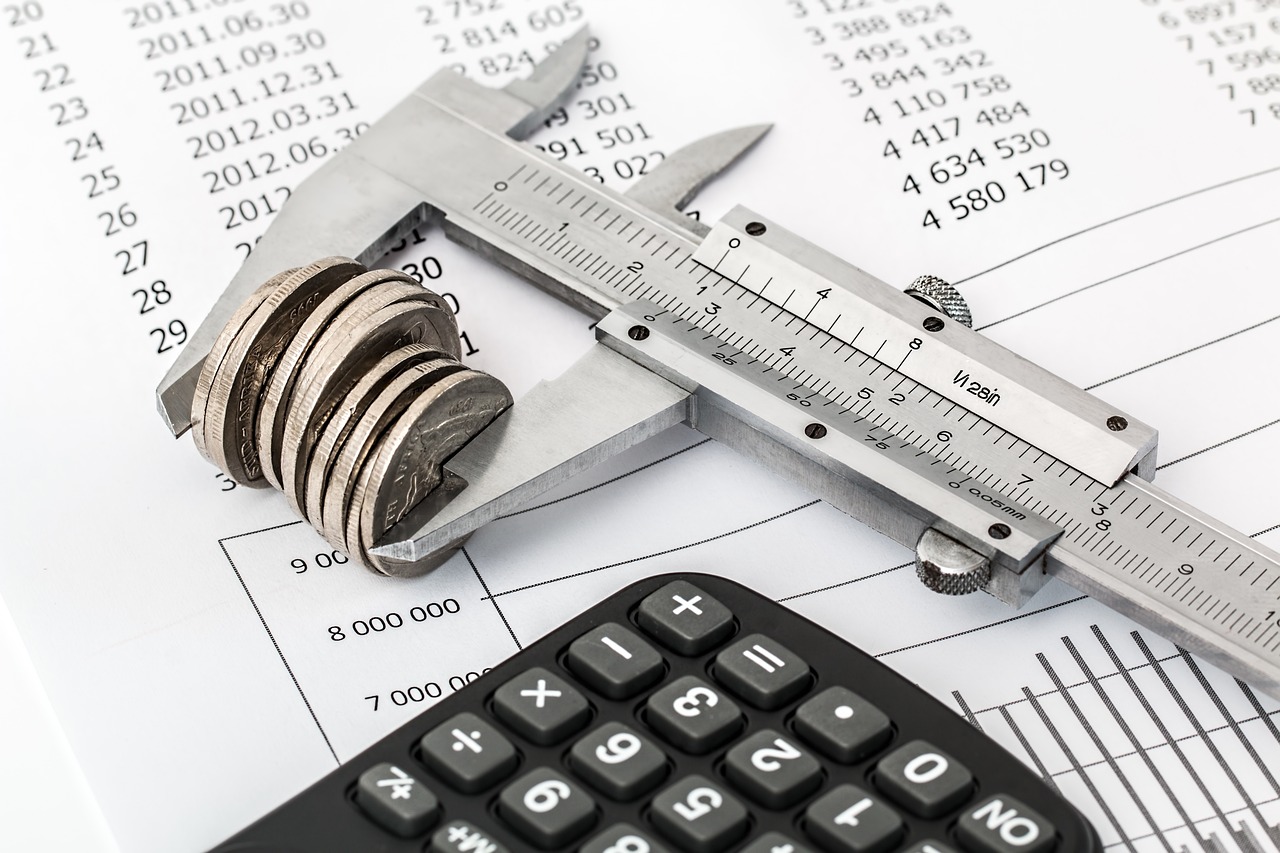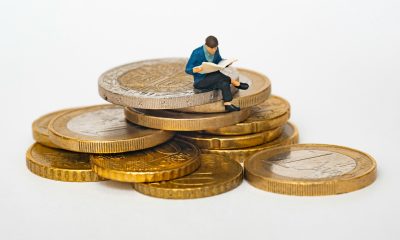Featured
Has Spain Really Recovered from the 2008 Crisis
Individual consumption in Spain is still 25% lower than in 2007, despite the fact that it has recovered from the fall suffered due to the impact of Covid-19 by growing by 3.5% in 2021, according to a report prepared by the BBVA Foundation. According to the study published by BBVA Foundation economists, individual consumption fell in 2020 to €16,500 per year, down 10.1% from the previous year.

When analyzing the economy and the welfare of its citizens, one tends to look at gross domestic product or GDP. This indicator counts (in monetary terms) all the goods and services produced by an economy in a given period of time (usually a year). However, this indicator leaves much to be desired when it comes to analyzing the real welfare of the population.
A much more valid indicator, according to the statistical agency of the European Commission (Eurostat) is the effective individual consumption per capita. This indicator reached its peak in Spain in 2007 and, after several crises, has not even come close to the levels of that time, revealing that Spaniards have not returned to enjoying living standards similar to those of 2007.
Individual consumption includes all the items included in the INE’s Household Budget Survey, ranging from food and drink, clothing and footwear, housing, water, and electricity, to spending on transport, leisure, education or health, and other goods and services.
Read more about Spain’s economy and find the latest economic news from around the world with our companion app Born2Invest.
Why individual consumption matters
Eurostat explains that “real individual consumption consists of the goods and services actually consumed by individuals…. Although GDP per capita is often used as an indicator of the level of well-being of countries, it is not necessarily an adequate indicator of the actual standard of living of households. For this purpose, it is better to use the indicator of effective individual consumption (EIC) per capita”.
There is a lot of statistical ‘noise’ in per capita income since it comes from distributing aggregate GDP (in addition to wages, it also includes the profits of companies or investments in the economy) among the total population. However, individual consumption is based, redundantly, on what individuals consume, which in the end is what generates welfare within the current canons and model of society (liberal democracy and capitalism) that we have chosen.
This is usually considered the most accurate indicator for international volume comparisons, as it is not influenced by the fact that the organization of some important services consumed by households, such as health and education services, differs greatly between countries.
Individual consumption is still 25% below 2007
Individual consumption is still 25% lower than in 2007, despite the fact that it has recovered from the fall suffered due to the impact of Covid-19 by growing by 3.5% in 2021, according to a report prepared by the BBVA Foundation.
According to the study published by BBVA Foundation economists, individual consumption fell in 2020 to €16,500 per year, down 10.1% from the previous year. Although the recovery has been rapid and in 2021 consumption reached 17,100 euros, up 3.5%, it is still far from the peak of 22,800 euros in 2007.
As the BBVA Foundation explained, the Great Recession already had a strong impact on individual consumption achieved at the beginning of the century, which fell 24.7% from that 2007 peak to 17,200 in 2014. According to the report, the drop was even more pronounced in households with more members, including those with dependent children, whose consumption contracted by 25.9%.
In addition, the study indicates that the long duration of that period of financial crisis resulted in an increase in inequality in the distribution of individual consumption, which has not registered any improvement, even in the recovery period, between 2014 and 2019.
Inequality sometimes increases during expansive periods of the economy, despite the fact that these are usually accompanied by a reduction in the unemployment rate. This occurs because the price of assets (housing, stocks, bonds…) usually increases during economic growth cycles, generating the so-called ‘wealth effect’ that leads households with assets to consume more.
“Although the reduction in consumption in 2020 due to the general confinement of the population by the covid-19 has led to a reduction in inequality, the recovery of consumption in 2021 has been accompanied by a further increase in it,” warns the BBVA Foundation study.
Old-age pensions show their robustness in terms of consumption
As can be extracted from the report, the reduction in individual consumption due to the Great Recession was greater in households with more members, including those with dependent children, and it is also greater the younger the household is.
Among households with dependent children, the drop in individual consumption between 2007 and 2014 was 27.6%, from €22,600 to €16,400. Although in 2019 this figure had risen to €17,900, it was still the lowest among the three groups of households considered: adults with dependent children, adults without dependent children, and adults over 65.
Households consisting of people over 65 years of age, generally retired, started from the lowest level of individual consumption, 17,800 euros in 2007, and were practically unaffected by the recession.
Finally, households with adults without dependent children, which before the crisis enjoyed the highest level of individual consumption at €24,800 in 2007, suffered a 26.7% drop to €18,200 in 2014, with a subsequent recovery to 2019 of 5.3%.
As a result, if in 2007 the maximum difference in individual consumption between the three types of households mentioned was €7,100, in 2019 it was €1,300. “Covid-19 has reduced individual consumption in all three types of households, although the least affected, again, have been households with adults over 65 years of age,” the report concludes.
The key to inequality in Spain
As for the parameters of inequality, the economists who produced this report point out that the inequality index on consumption (measured by the Jorgenson and Slesnick inequality index based on individual consumption) shows that the onset of the Great Recession saw a drop of 1.1 points, from 29.2 in 2007 to 28.1 in 2008.
During the recovery years, there were increases in inequality, and 2015 saw a return to the 2007 level, a value that has been virtually unchanged through 2019.
Although the reduction in consumption in 2020 due to the general confinement of the population by covid-19 caused a slight reduction in inequality of 0.6 points with respect to 2019, with the recovery of consumption in 2021 inequality has increased again, to 28.7, surpassing the 2008 indicator.
These experts from the BBVA Foundation conclude by launching some recommendations to prevent inequality from becoming chronic and widening in the Spanish economy: “It would be desirable to reflect on the policies and measures needed to ensure that during periods of economic recession, it is not the most disadvantaged households or those with the most vulnerable members who are most affected.
A starting point would be to evaluate the social protection measures carried out during the Great Recession, and also those of covid-19, to identify whether their scope, volume and agility in processing were sufficient. Only in this way will it be possible to design effective measures for the next economic recession. In addition, it is also urgent to ensure that in periods of growth, a significant part of the population is not left behind,” they state.
__
(Featured image by stevepb via Pixabay)
DISCLAIMER: This article was written by a third party contributor and does not reflect the opinion of Born2Invest, its management, staff or its associates. Please review our disclaimer for more information.
This article may include forward-looking statements. These forward-looking statements generally are identified by the words “believe,” “project,” “estimate,” “become,” “plan,” “will,” and similar expressions. These forward-looking statements involve known and unknown risks as well as uncertainties, including those discussed in the following cautionary statements and elsewhere in this article and on this site. Although the Company may believe that its expectations are based on reasonable assumptions, the actual results that the Company may achieve may differ materially from any forward-looking statements, which reflect the opinions of the management of the Company only as of the date hereof. Additionally, please make sure to read these important disclosures.
First published in elEconomista.es, a third-party contributor translated and adapted the article from the original. In case of discrepancy, the original will prevail.
Although we made reasonable efforts to provide accurate translations, some parts may be incorrect. Born2Invest assumes no responsibility for errors, omissions or ambiguities in the translations provided on this website. Any person or entity relying on translated content does so at their own risk. Born2Invest is not responsible for losses caused by such reliance on the accuracy or reliability of translated information. If you wish to report an error or inaccuracy in the translation, we encourage you to contact us.

-

 Crypto5 days ago
Crypto5 days agoTariff Turmoil Sends Bitcoin and Ethereum Lower as Crypto Markets Face Mounting Pressure
-

 Markets2 weeks ago
Markets2 weeks agoMarkets, Jobs, and Precious Metals Show Volatility Amid Uncertainty
-

 Crypto2 days ago
Crypto2 days agoEthereum Outlook: Key $2,190 Resistance, Whale Accumulation, and Buterin’s Push for True DeFi
-

 Cannabis1 week ago
Cannabis1 week agoAI Can Mimic Psychedelic Experiences but Cannot Truly Feel Them, Study Warns

























